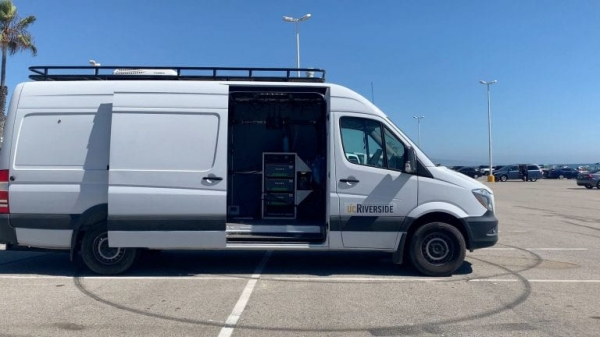The COVID-19 pandemic changed the world, including how people used their cars. In a place where freeways, traffic and smog are ubiquitous, Southern Californians drove far less during the pandemic, and that change in behavior resulted in a massive decrease in carbon dioxide greenhouse gas emissions, according to new research published by scientists from the University of California, Irvine.
The findings may help steer emissions reductions policymaking in Southern California cities.
“We observed CO2 reductions of about 60 percent in 2020 compared to 2019, showing that the changes in traffic drastically reduced fossil fuel emissions during the pandemic,” said Cindy Yañez, a Ph.D. student in the UCI Department of Earth System Science and the lead author of the AGU Advances study that details the findings. “But emissions rebounded to pre-pandemic levels by July 2021.”
Yañez and her team drove a mobile lab that belongs to the lab of Professor Francesca Hopkins of UC Riverside – a UCI alumna – around Southern California freeways during pandemic months to measure how CO2 concentrations were changing. They also collected plant samples with assistance from a network of community scientist helpers across the state.
Read more at University of California - Irvine
Image: At the height of the COVID-19 pandemic in 2020, UCI Earth system science researchers and their collaborators at UC Riverside drove a mobile lab around Southern California to collect air samples. They found a significant drop in carbon dioxide emissions on the region’s freeways during that time, but the decline soon rebounded as more people took to the roads in the summer of 2021. (Credit: UC Riverside)


